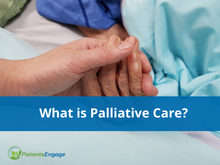
Dr. Seema R Rao of Karunashraya explains palliative care, addresses the myths and misconceptions around it and highlights its importance for better quality of life of patients.
What is Palliative Care?
In India, more and more people are suffering from serious illnesses like cancer, heart diseases, chronic respiratory diseases, AIDS, stroke, organ failure, drug-resistant tuberculosis, and neurological diseases. Physical issues like pain, shortness of breath, nausea, loss of appetite, fatigue, difficulty sleeping, etc., are common in people with these illnesses and cause a lot of distress. The side effects of treatments can be distressing and disabling to many patients. The inability to fulfil professional, personal, and social roles can lead to feelings of isolation, guilt, and worry about the future. The medical uncertainties associated with chronic illness may precipitate feelings of sadness and depression, anxiety, fear of death, and paradoxically a desire for hastened death. In addition, the prolonged nature of the disease, the multiple hospital & ICU admissions, and the litany of treatments they undergo can trigger financial crises in the families. For many individuals, the suffering that a chronic life-threatening illness brings heralds an existential and spiritual crisis and an attempt to find meaning in the suffering. The caregivers also experience multiple stressors along with the patient and often mirror the suffering of their loved ones. Palliative care (PC) addresses these multiple needs of patients and their caregivers.
Palliative care is a holistic and multidisciplinary specialized medical care for patients (adults and children) with serious illnesses and their families. Palliative is derived from the Latin word the ‘palliare’ meaning cloak. PC is a cloak of comfort and care that envelops the patient and their families and reduces their suffering. This highly focused care mitigates unpleasant physical symptoms, provides emotional, social, and spiritual support, and improves the quality of life. When a cure is no longer possible, and death is imminent, PC ensures that patients receive good end-of-life care in accordance with their values and preferences so that they can die with comfort and dignity. In addition, PC provides support to patients and their loved ones through grief and bereavement. While PC does not treat the primary disease, it manages the symptoms and complications of the disease that impact the quality of life of the patient.
What are the benefits of palliative care?
Palliative care is provided by a multidisciplinary team consisting of doctors, nurses, counsellors, physiotherapists and other allied health professionals and volunteers. Palliative care experts work diligently to alleviate pain, side effects of the illness/treatment, and other distressing symptoms and enhance comfort. By providing emotional support, guidance and counselling, the PC helps the patient and their loved ones navigate the challenges of life-threatening illnesses. PC addresses the informational, physical, emotional, social and spiritual needs of patients and their families. The compassionate approach of PC teams helps individuals cope with their emotions, fosters resilience, and enhances psychological well-being.
Caregiver empowerment is critical to PC provision. Despite their pivotal role, many family caregivers are not prepared for the caregiving role. PC provides guidance to family caregivers and empowers them with: a) disease-specific knowledge on managing the symptoms, emotions and care transitions, b) on making timely decisions about preferences for future care, and c) on accessing community, peer and healthcare support. PC encourages open and honest conversations about treatment options, goals of care, and advance care planning. By facilitating effective communication between patients, families and healthcare providers, PC ensures everyone is on the same page regarding the patient’s wishes. This collaborative decision-making process ensures that patients make informed choices, thereby promoting a sense of dignity and control in their medical journey. PC teams provide continuity of care by coordinating and communicating with other healthcare professionals in the community to ensure good end-of-life care. PC can be provided in the hospital, at home or in a hospice facility. Through good symptom management, emotional support, and improved communication, PC prevents unnecessary hospital admissions and minimizes the use of aggressive interventions at end-of-life
What are the misconceptions about palliative care?
Myths and Misconceptions about Palliative Care:
-
Palliative care is only for dying people
Fact: Palliative Care begins at the diagnosis of any chronic illness. It runs concurrently with curative treatment and aims to maximise the quality of life.
-
It is meant only for cancer patients
Fact: Anyone with any type of serious illness and health-related suffering is eligible for palliative care, irrespective of age, type of illness, and survival status.
-
Palliative care hastens death
Fact: Palliative care neither hastens death nor prolongs the dying process. When death is inevitable, palliative care teams have discussions with the patient and the family and avoid starting medical interventions that are of no benefit to the patient.
-
Being with the PC team means that you will not be able to go to other doctors
Fact: Palliative care teams coordinate with your other doctors to improve your quality of life. They do not replace other care providers.
-
Pain and depression are a natural part of the dying process
Fact: Pain and depression are not part of the dying process. If present, they have to be treated to improve the quality of life.
-
Morphine can lead to addiction and can hasten death
Fact: Morphine at end-of-life does not lead to addiction. Appropriate doses of morphine are given to relieve the pain and not to hasten the death of the patient.
-
Palliative care is the same as hospice care
Fact: Both types of care focus on alleviating the suffering of the patient and the family through expert symptom management and improving quality of life. However, palliative care can be offered at any stage of the disease, alongside curative treatment, while hospice care is provided to those who are nearing the end of life, where curative or disease-modifying treatment is no longer feasible.
-
Palliative care means giving up hope
Fact: Palliative care does not equate to abandoning hope. Palliative care enables open conversations between patients, caregivers and the healthcare team about recovery, death and dying. The psychologists in the PC team provide support to patients and families to come to terms with their disease, handle grief, and accept unfavourable outcomes, while enabling the completion of end-of-life tasks. This helps in fostering realistic hope.
-
Patients should not be told the truth about their disease
Fact: People believe that patients may lose hope and stop ‘fighting’ if they know that their disease is incurable and they are dying. This is not true. Patients who have full knowledge about their disease and its outcome are able to participate in end-of-life planning and achieve life closure.
-
Children should not be exposed to death and dying
Fact: Children also experience grief. Allowing them to say goodbye and talk about death and dying helps them to develop healthy attitudes towards death as adults.
Conclusion:
Palliative care is a beacon of hope and compassion for patients with serious chronic illnesses and their families. By providing holistic care that focuses on the physical, psychological, social and spiritual domains, PC alleviates suffering and improves the patient experience. Embracing palliative care does not signify giving up, rather, it offers a chance to live life to the fullest, surrounded by a caring team and concerned caregivers who are dedicated to the patient's and the families’ wellbeing. By raising awareness about the numerous benefits of PC, we can foster a society that embraces compassion and empowers those facing life’s most challenging moments.

Dr. Seema R Rao
Associate Director (Education and Research), Karunashraya Institute for Palliative Dare Education and Research (KIPCER), Bangalore
To know more about palliative care services visit: https://karunashraya.org/






